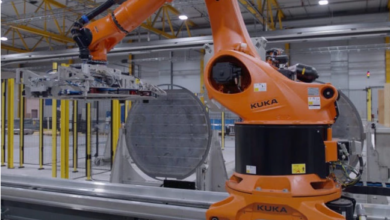PCK refinery gives the go-ahead for green hydrogen

PCK commissioned Siemens Energy to create a concrete technical plan for the production of green hydrogen in the PCK refinery in Schwedt.
This includes the use of several electrolysers, which together can be expanded to a size of around 100 megawatts. As a first step, the aim is to replace gray hydrogen (produced from natural gas, among other things) that is currently used in refinery processes with green hydrogen.
With the signing of the contract by Siemens Energy and the PCK refinery for the basic engineering of this electrolysis plant, an important cornerstone is laid on the way to a green refinery and the transformation process in the Schwedt region is started.
Despite the difficult circumstances that arose after February 2022, with the great challenges of switching to alternative crude oils and the supply via Rostock, PCK has continued to work on the future of the site. The refinery was able to build on extensive studies and, with its motivated employees, develop a project that is unique in Germany and forms the basis for the 2030+ strategy.
Ralf Schairer said, “We are convinced that refineries with the existing infrastructure will continue to be necessary for the future. We know that our products will change over the next few years in order to achieve the ambitious climate protection goals. The PCK is in the middle of a structurally favorable environment, with above all access to renewable electricity and therefore has very good prerequisites. This basic engineering in cooperation with Siemens Energy is an important step towards the future.”
Jörg Steinbach explained, “The agreement between Siemens Energy and PCK is an important step in the realignment of the refinery. Hydrogen plays a key role when it comes to replacing fossil fuels with renewable sources. It can serve as a storage medium and as a raw material for other applications such as synthetic fuels. For PCK, the electrolyser represents an important building block in the necessary transformation of the refinery towards alternative energies. In the process of making the PCK refinery fit for the future, we are clearly making progress.”
Michael Kellner added, “This is the right way towards a transformation, important to strengthen the competitiveness of this transnational business location and thus to preserve jobs. The PCK is of great importance for the region, both for our security of supply with important petroleum products and heat and with a view to future-oriented projects such as hydrogen production. We need reliable partners to master the energy transition. I am pleased that a good partnership has developed for the location with Siemens Energy and the PCK refinery”.
